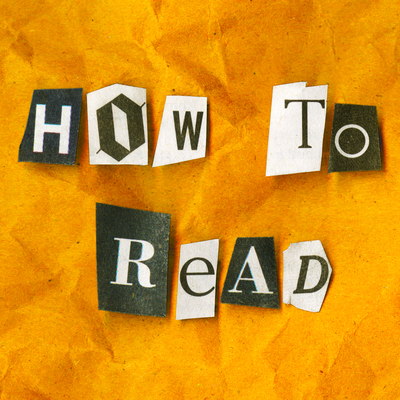What do we want when we revisit a beloved story? Sarah Chihaya suggests we’re drawn back by contradictory desires: on the one hand we want to relive what we experienced the first time, but we also want something fresh and new. From recent movie sequels and remakes to the experimental novel Life After Life, Sarah shows how revisiting familiar stories can be a cynical ploy to make money, but can also be an under-appreciated source of artistic inspiration.
Audio
When we think about the generation before us, we might feel that their cultural touchstones aren’t relevant today. But Tom Mole argues that the literature of the past only survives because the next generation find new ways to make it relevant. In the Victorian era, new illustrations for the previous generation’s poetry helped update the image of writers like Byron and Wordsworth in ways they couldn’t even have imagined.
The basic story of Adam and Eve is that Eve was tempted by a serpent, ate the forbidden fruit and thus caused humans to be kicked out of Paradise. But does she really deserve the blame? Stephen Greenblatt says this question isn’t a new one – Eve has had her defenders from the very start. From early Jewish commentaries to John Milton’s epic poem Paradise Lost, Stephen shows how Eve’s story has always been open to re-interpretation. Her story has inspired not only blame, but also understanding – and even praise.
Some academics think that reading a book just to identify with a character is self-centred and shallow. When you’re only reading for characters you can identify with, you’re projecting yourself onto the book. But Merve Emre thinks that’s unfair. Far from being shallow, who readers do and don’t identify with is a complex and nuanced question. Using examples from Freud to Fifty Shades of Grey, Merve shows how identifying with characters can reshape our sense of self and help us better understand the society we live in.
We tend to think of literature as something that’s written down. But Martin Puchner is interested in cases where the spoken word precedes, coexists with or even comes after the written word. From Ancient Greece to medieval Mali to Stalinist Russia, he explores why certain literary artists have preferred speech to writing. By understanding why and when these artists relied on speech, Martin argues that we can better appreciate their written works too.
Pick up a novel today, and it’s almost guaranteed to be divided up into chapters. But that hasn’t always been the case. The chapter had to be invented. English professor Nick Dames has been studying this history. In this episode, he talks with us about how the chapter first came to be — and how writers have reinvented it over the centuries.
You might not think writing style matters in philosophy. But Kwame Anthony Appiah – a professor of philosophy who’s also a literary scholar – argues that style is crucial for understanding almost all the great philosophers. He shows how a single strange sentence from the American philosopher Quine unsettles our familiar sense of the world. In contrast, French philosopher Montaigne’s humble style underpins his open-minded thinking. Anthony guides us through the rewards of reading philosophy as a kind of literature.
A utopia presents an ideal world that has overcome the problems of the present. For the original Utopia, written by Thomas More in the 16th century, one of those problems was the division of land into public and private. His solution was shared ownership of the land. But what sounded good on the page didn’t work so smoothly in practice. German professor Bethany Wiggin shows us how utopian thinking shaped the founding of Philadelphia — and how it clashed with the values of the Lenape people already living there.
What connects Langston Hughes to Hong Kong, Malcolm X to Mecca, and Syrian merchants to the 9/11 memorial? In this episode, English professor Wai Chee Dimock shows us how to read quintessentially American writers from an international perspective. From this angle, major American concerns like race and money start to look a little different.
